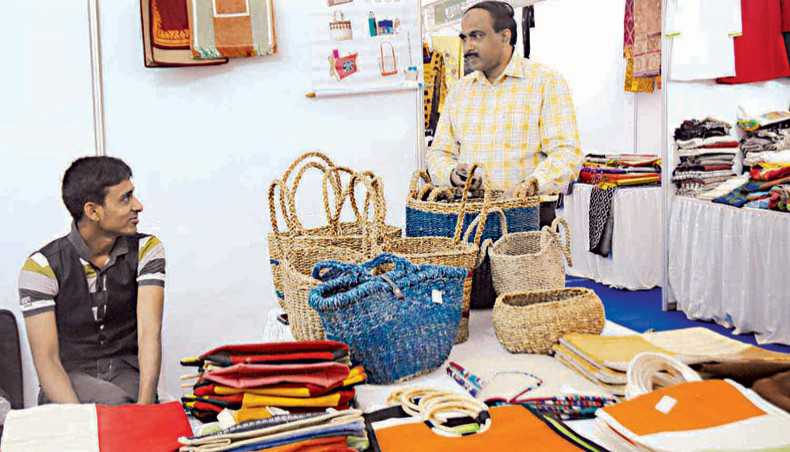Fresh new tax facilities sought for tiny, medium enterprises

The SME Foundation on Tuesday demanded a couple of facilities related to tax, value-added tax and customs duty for small and medium enterprises in the forthcoming national cover the fiscal year 2021-2022 to make the fiscal policy friendly to SMEs.
It termed the sector a lifeline to the economy.
The Foundation sought tax getaway benefit for a decade for new SMEs in all sectors to market industrialisation and job creation.
It as well demanded a decrease in corporate tax for agro-processing sectors, garment accessories and product packaging sectors, agricultural machinery makers and frozen food sector.
Corporate tax for agro-processing industries ought to be placed at between 3 % and 15 per cent in line with poultry feed, fish feed and dairy products making industries from current 32.5 %.
Excessively more significant corporate tax rate is affecting the growth of the sector, it said.
It also suggested a reduction in source taxes on export of garment components and packaging products to 0.25 per cent from existing 0.5 % and corporate tax rate to 12 % from 32.5 % to promote export.
Corporate tax charge for agricultural machinery producers ought to be reduced to 20 % from current 32.5 %, it added.
Source taxes on export of diversified jute products ought to be withdrawn, it said.
The NBR also needs to reinstate source tax on export subsidy previously directed at the handicraft products and frozen foods.
THE BUILDING BLOCKS sought withdrawal of 2 per cent advance tax on purchase of agricultural products through localized letters of credit or other financial mechanisms as the responsibility of the tax visited marginalised farmers while import of the merchandise was tax-free.
It also recommended a good downward revision of the costs of taxes deduction at supply for SMEs.
THE BUILDING BLOCKS also sought a provision of tax refund or introduction of financial support throughout a crisis faced by SME sector exporters.
In addition, it demanded exemption from repayment of VAT to hometown production of machinery and extra parts while there is absolutely no VAT on import of the things.
THE BUILDING BLOCKS also sought reduced VAT rates for various products, including cotton thread, human-made fibre and coir fibre along with adding all agricultural machinery to the set of VAT-exempted items at the production stage.
The Foundation requested the earnings board to raise the minimal value of imported table, kitchen or additional household articles of stainless and hinges with bearing to prevent underinvoicing and protect the neighborhood industry.
It also sought a decrease in regulatory duty on imports of wheat starch, maize starch and aluminium wear and a rise in the work on imports of cartons, boxes and situations of corrugated paper and paper panel, printed label along with revision of duty composition for some other products.
SME Basis consultant Lutfor Rahman placed the demands at the meeting.
At a separate ending up in the transport sector businesses, NBR chairman Abu Hena Md Rahmatul Muneem criticised the firms for his or her reluctance in collecting VAT and depositing those in the government exchequer.
He said that VAT was not paid by the firms rather they collected those from customers and deposited to the government.
So, there should not be any specific objection regarding VAT from businesses, he said.
The NBR chairman said that almost all of the trade bodies were expressing their reservations on VAT payment, citing various issues, including reluctance of consumers in payment of VAT.
‘It is true that lots of consumers are not ready to pay VAT but it is the responsibility of dealers to collect the tax and deposit it in the federal government exchequer,’ Muneem said.
He advised the dealers to add the VAT quantity with the full total prices of product or service to avoid problems found in collecting VAT separately from customers.
At the getting together with, leaders from transport sectors demanded withdrawal of VAT on air-conditioned bus and start considering the negative impact of COVID-19 on the income of individuals and overall economy.
The Release Owners Association Bangladesh and the Bangladesh Inland Waterways (Passenger Carriers) Association said that the NBR should exempt the passengers from payment of 10 % VAT on air-conditioned rooms to popularise river routes for passenger transport.
Launch owners suffer from a decline running a business due to a fall in amount of passengers following the COVID-19 outbreak and a growth in cost to do business, they said.
Previous Story
- Lack of usage of credit major barriers to...
- Exploring the scope of SME bond
- Move to increase procedure to list small-cap companies
- Little garment factories struggling to stay afloat
- Women entrepreneurs need particular financial support: experts
- Ways of tackle pandemic induced poverty found in...
- 96pc small enterprises suffer fall in income: study
- 96% MSMEs in Bangladesh lost income in Covid-19...